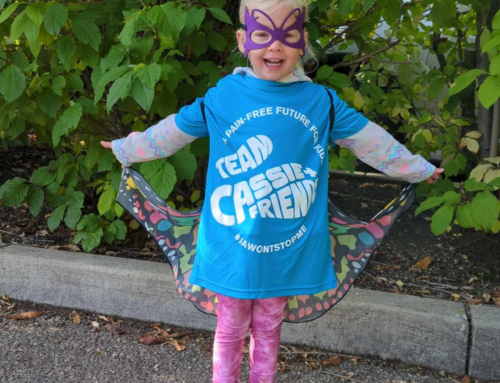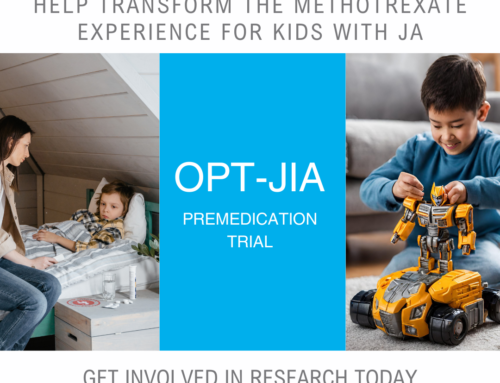Teens Taking Charge: Andrea’s JIA
After being diagnosed with Juvenile Arthritis at the age of two, Andrea’s childhood and teen years were much different than those of her peers. Her experiences with doctors’ visits and medications from such a young age forced her to mature faster and understand things her friends could not. In Andrea’s story, she shares her trials and tribulations managing medications and school, and shares some of the tips that helped her cope and thrive along the way.
Andrea’s Story:
“As if being a teenager wasn’t hard enough, being a teen with JIA was a lot harder. I now had to somehow stay on top of my medications; which, my family would agree, I was awful at. I took folic acid daily, Methotrexate once a week via injection and Remicade once every six weeks through infusion. Needless to say, my high school days were quite different than my peers (Learn more about different types of JIA medications).
I also wasn’t one to ‘broadcast’ my arthritis issues, so having to constantly explain why I was late or missing from school was very difficult for me. Eventually, I did start opening up to some of the people who were most important to me, but I would always remind myself: not everyone needs to know everything. Once I accepted that, I found others did to.
Thankfully, with the help of my parents, I was able to schedule my routine in a way which had the least impact on me academically, physically and mentally. I found that having a set routine became the best scenario for my lifestyle and allowed me to better manage the responsibilities that came with my condition. I took my folic acid every morning when I brushed my teeth, my Methotrexate every Tuesday night before bed (so that my nausea was mostly gone by the morning) and my Remicade (taken by IV infusion at the clinic) was usually scheduled on Fridays. I would often have to miss the majority, if not the whole school day, for my infusions, so being able to book my appointments six weeks in advance allowed me to give my teachers notice and gave me some time to reorganize my class and extracurricular schedules too.
Looking back, I realize now just how lucky I was to have such understanding teachers and parents who were able (and willing) to flex their work schedules. As much as I hated all of their ‘helpful hints’ at the time, I definitely needed their constant reminders in order to be successful with my medications. Without the support of my friends and family around me, there is no way I would have stayed on top of my health and become the person I am today. I found belonging and people who could truly understand me at the Arthritis Society’s Camp Capilano and through events like Cassie and Friends’s Family Day. Now, I help other kids and teens through my role as a Cassie & Friends’ Board Member.
Follow Andrea’s lead and get involved in your own healthcare! Here are some of her best tips/ideas for taking charge of your condition:
- Create your own system for remembering your JIA medications and plan ahead to minimize any side effects/disruptions
- Although it may be tough, you should definitely talk to your teachers about your condition. They can be a huge help in making the school day easier for you.
- Even though it can be difficult to open up about your symptoms, just remember there are people who may be able to help you and it’s okay to ask for help. Building my own support system was everything!










Leave A Comment